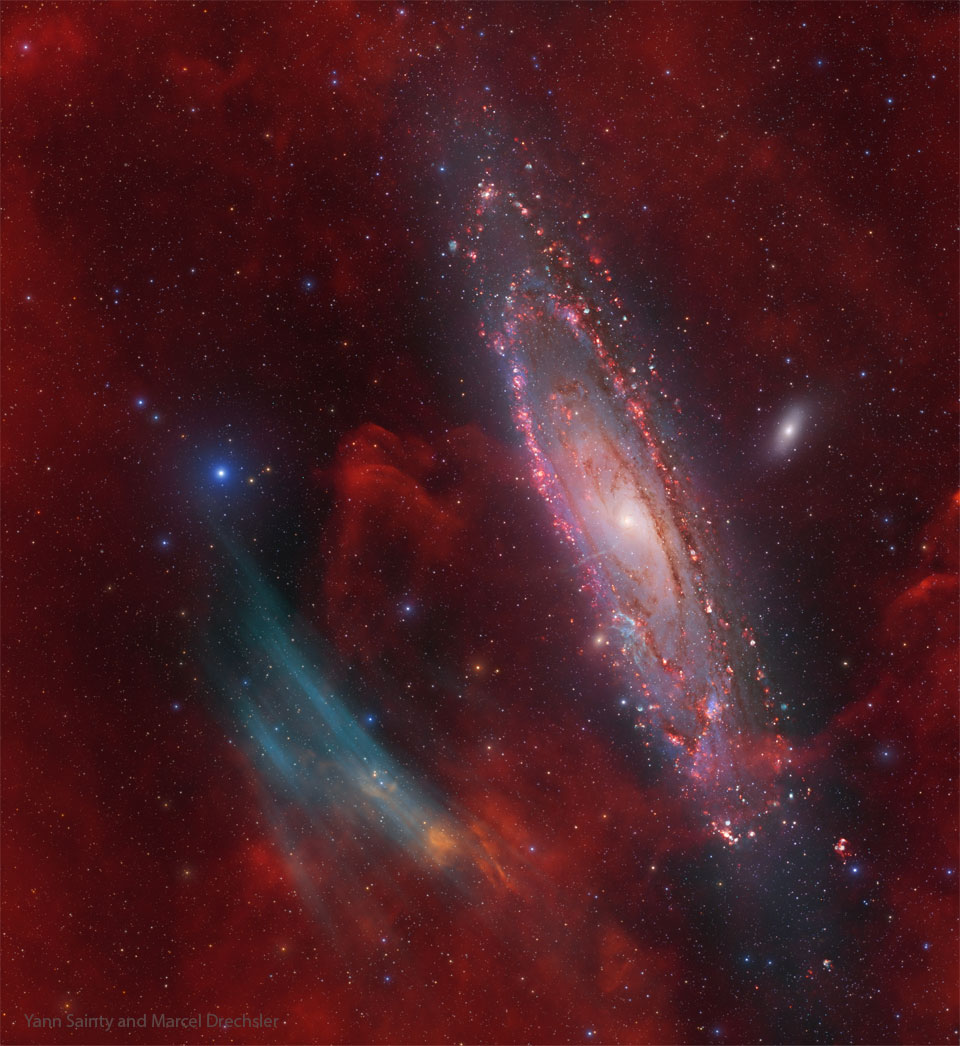2023年1月17日
Unexpected Clouds Toward the Andromeda Galaxy
Image Credit & Copyright: Yann Sainty & Marcel Drechsler
Explanation: Why are there oxygen-emitting arcs near the direction of the Andromeda galaxy? No one is sure. The gas arcs, shown in blue, were discovered and first confirmed by amateur astronomers just last year. The two main origin hypotheses for the arcs are that they really are close to Andromeda (M31), or that they are just coincidentally placed gas filaments in our Milky Way galaxy. Adding to the mystery is that arcs were not seen in previous deep images of M31 taken primarily in light emitted by hydrogen, and that other, more distant galaxies have not been generally noted as showing similar oxygen-emitting structures. Dedicated amateurs using commercial telescopes made this discovery because, in part, professional telescopes usually investigate angularly small patches of the night sky, whereas these arcs span several times the angular size of the full moon. Future observations — both in light emitted by oxygen and by other elements — are sure to follow.
Tomorrow’s picture: JWST lensing
仙女座星系方向的未预期云气
图像提供与版权: Yann Sainty & Marcel Drechsler
说明: 为何仙女座星系方向附近会出现氧辐射弧?没人能说个准。这道以蓝色显示的气体弧,是刚在去年由业余天文学家所发现并获得确认。为何仙女座星系方向附近会有这种气弧,目前有2个主要的起源假说:它们真的位在仙女座星系(M31)附近,或者它们是我们银河系里的云气丝,只是凑巧出现在此方向。更令人费解的是,以前主要在氢及其他辐射波段拍摄的M31深空图像,并没见到这种气体弧,而其他更遥远星系的图像,通常也没出现类似的氧辐射结构。之所以是由使用商用望远镜的业余天文热爱者,做出此项发现的部分原因是:专业望远镜通常只探索夜空很小张角的区域,而这些辐射弧的跨度高达数个满月。想当然耳,未来必然会在氧及其他元素的辐射波段进行后续观测。
明日的图片: JWST lensing


